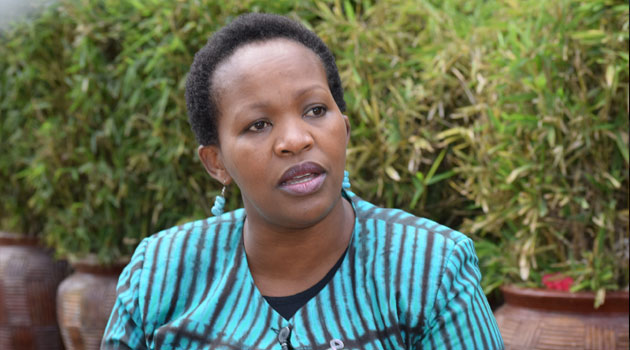
“Given that similar declines have been observed in the burdens of other deadly diseases thanks to widespread provision of effective vaccines for them, it would be imprudent and unethical to deny Kenyans this life-saving intervention,” Heath Advocate and co-founder Women 4 Cancer Early detection and Treatment, Benda Kithaka, said in seconding Dr. Koigi’s sentiments/CFM – Moses Muoki
NAIROBI, Kenya, Jan 21 – “I did not know I had cervical cancer, despite the fact that I had symptoms like bleeding and discharge, but sometimes we assume these things.
“What really made me go to the hospital was the discharge, because it was now un-usual, I thought it could be an infection.”
This is the story 40-year-old Millicent Kagonga, a Cancer survivor who was diagnosed in 2010.
Her story echoes the painful ordeal those suffering from cervical cancer are undergoing.
“I am a mother of three children; I got my firstborn at the age of 14 years, the second at 16 and my last when I was 20. In 2010, sadly my second child died, my marriage failed, and it is this year that I noticed the discharge,” she said.
Due to the fateful chain of events that had happened that year, Millicent did not seek medical attention and wallowed in her sorrow. She lives in Kariobangi, a low-income slum-dwelling located in the northeastern outskirts of Nairobi; hence the reason she could not share with anyone what she was going through for fear of stigmatisation.
“One day I stumbled a program on TV and the discussion was on cervical cancer and that it is manageable. I took action from then and started the treatment, though painful but worth it,” noted the now jubilant Millicent.
Millicent joins the over 550,000 women diagnosed with cervical cancer globally, with 5,250 being in Kenya alone in 2018.
On the same year, 3,286 women died from cervical cancer equivalent to nine women daily, making it the leading local cause of cancer mortality.
“I was referred to Kenyatta National Hospital (KNH),” she said of the recovery journey she described as “challenging to the family because it is not only emotionally draining but also financially difficult to sustain the treatment.”
“I was unemployed at the time I was diagnosed with cervical cancer, and so I depended on my brother for support. Before I even started the treatment, within those eight months, I had already spent around Sh60,000.
Cervical cancer patients can spend between Sh172,000 to Sh759,000 to get treated without surgery involved, with surgery the figure might go up to Sh1.25 million.
But there is light at the end of the tunnel according to Paul Koigi, a consultant Obs/Gyn at the Nairobi hospital.
“Within this initiative there the potential to reduce the burden of cervical cancer by up to 80 percent,” said Koigi.
Out of the numerous types of HPV, types 16 and 18 confer the highest risk of developing cervical cancer and are responsible for 70 percent of this condition.
Main attributes to cervical cancer include early sexual debut, having multiple sexual partners, having a partner with multiple sexual partners, co-infection with other sexually transmitted infections, smoking and immunodeficiency that enhance the risk of persistent HPV infection.
Koigi also noted that low socioeconomic status impedes access to screening and care.
“The HPV vaccine launched last year is targeting 800,000 10-year-old girls annually in two doses–six months apart. By offering it at this age, it will provide protection before sexual debut. By placing it in the national vaccination schedule, it should reach a high number of Kenyans for free.”
“Given that similar declines have been observed in the burdens of other deadly diseases thanks to widespread provision of effective vaccines for them, it would be imprudent and unethical to deny Kenyans this life-saving intervention,” Heath Advocate and co-founder Women 4 Cancer Early detection and Treatment, Benda Kithaka, said in seconding Dr. Koigi’s sentiments.
With the National Cervical Cancer Awareness Week slated for January 19-24, 2020, Kithaka has called on both genders to take advantage of the free cervical cancer screening tests in public and private health facilities as well as Faith-based organizations’ in an effort to reduce the cancer burden.
“The Nationwide exercise that will be launched in Makueni County will be open to all women of reproductive age. All Women found with suspicious results or invasive cancer will be linked to the current referral system for treatment in the health facilities.”
“Within the week, experts will be on hand to deliver qualified opinions on the management of cancer and priorities that Kenya should focus on towards elimination of this preventable disease,” Kithaka noted.










































